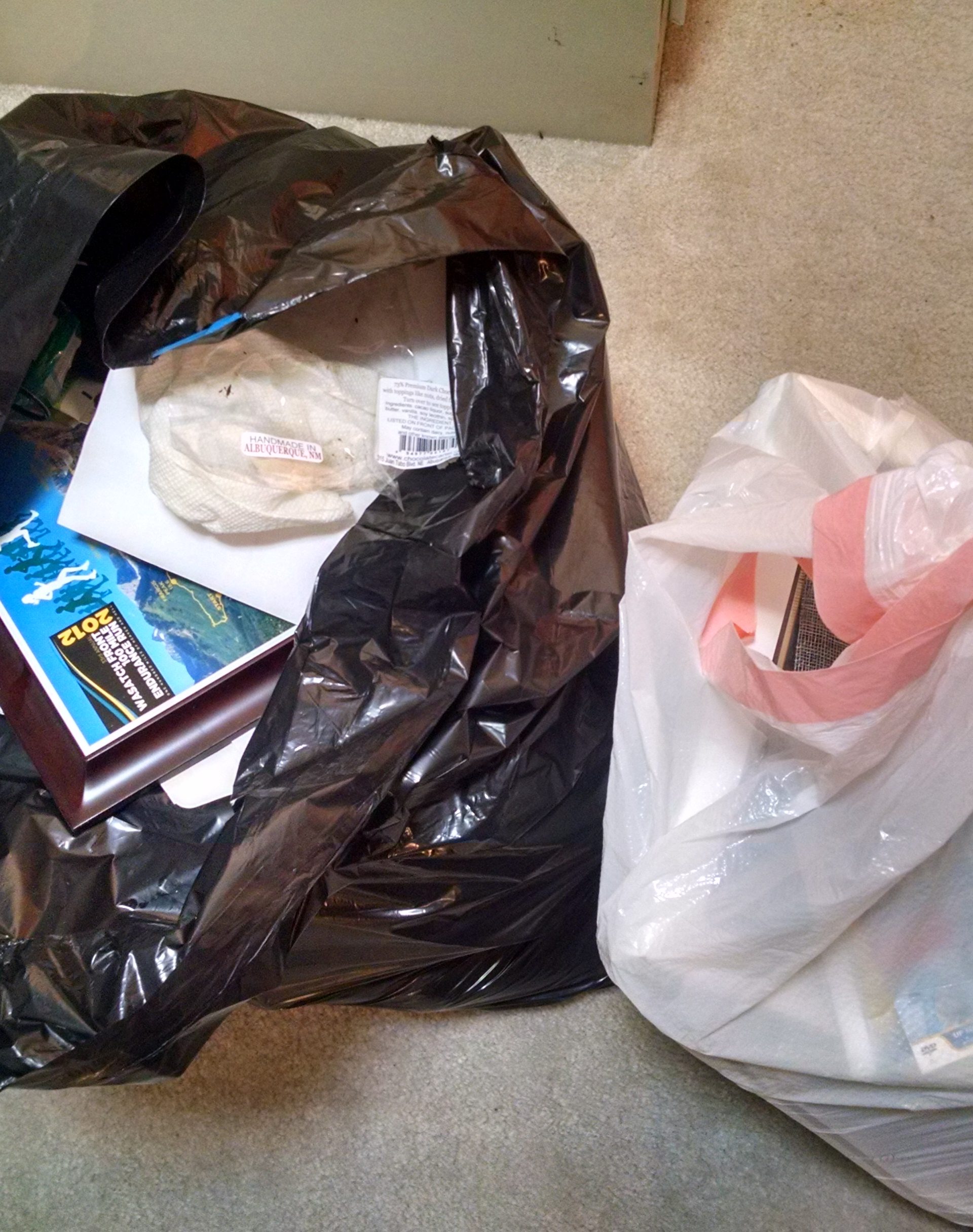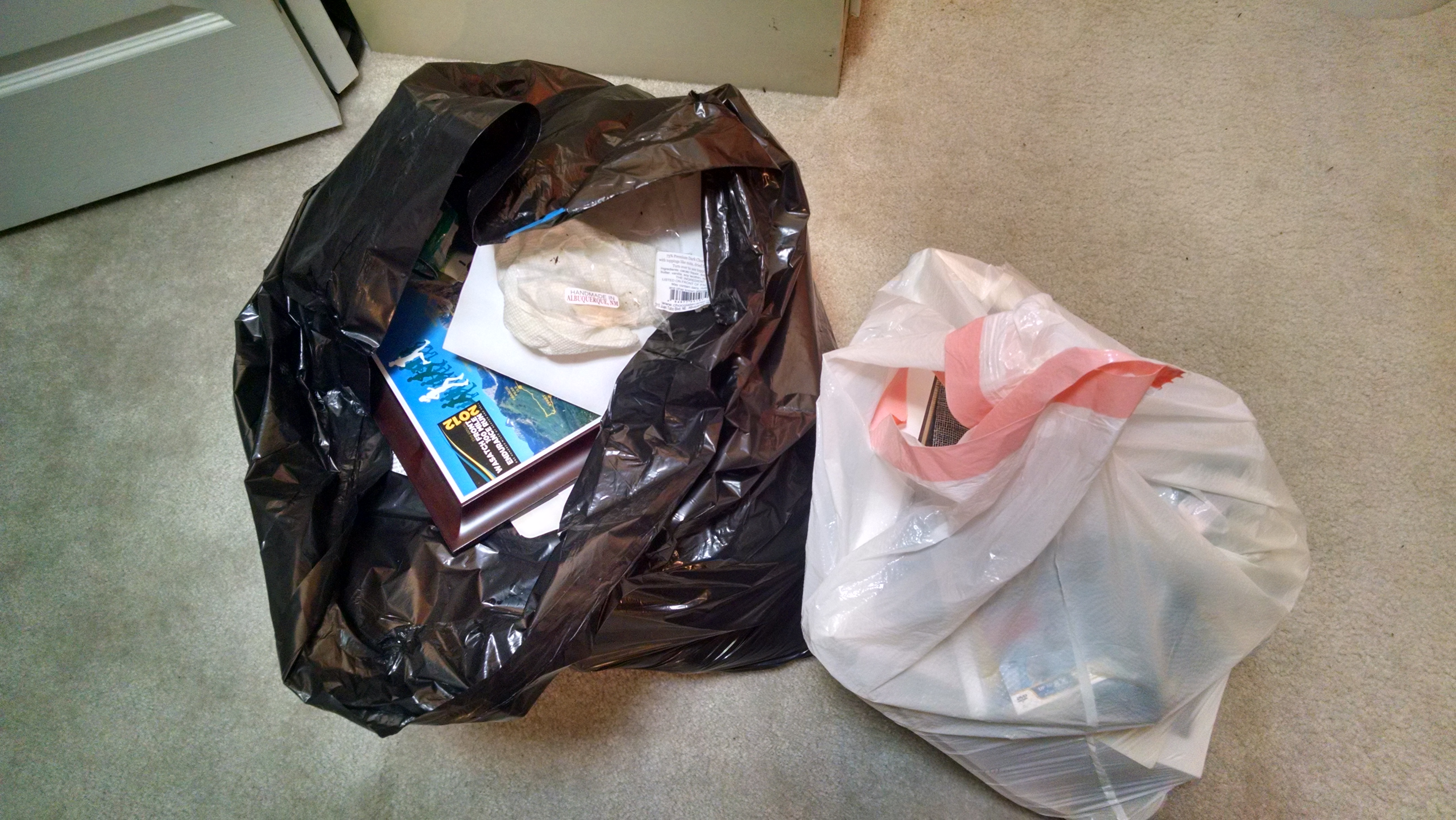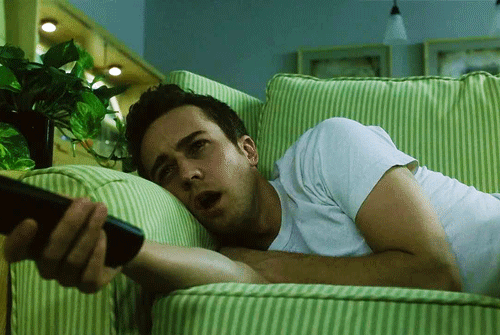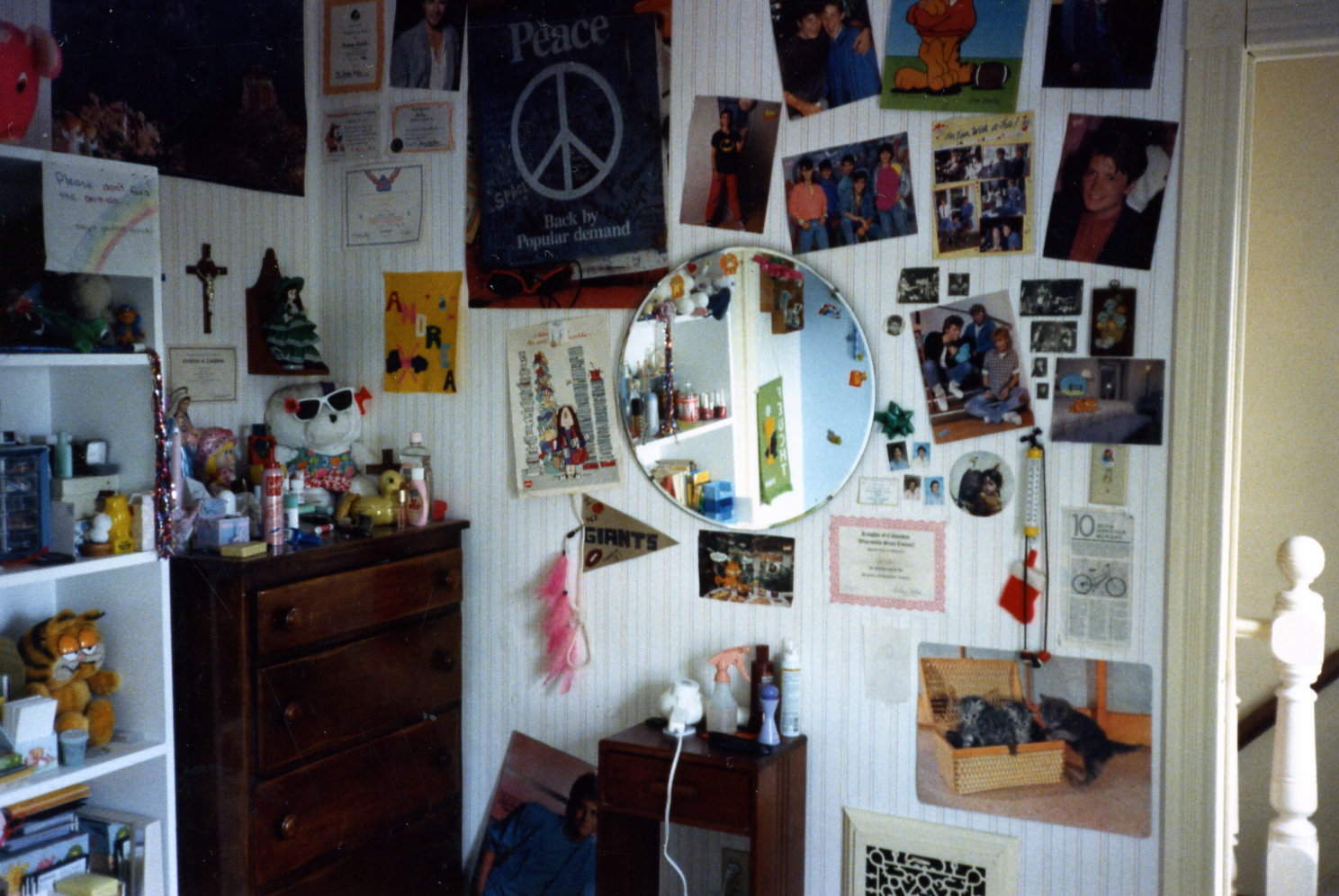For months I’ve been slowly purging the unbelievable amounts of crap I own, because it had started owning me. So far I’d estimate I’m down 10-15%, if that. Right now I’m only counting things in the actual house, not the skis in the garage or the rotten box of gawd-knows-what next to it. I know for a fact there is a box of 15 year old MREs, too. Don’t they last through the apocalypse? Anyone want them?
I don’t know what triggered it – likely some long-held rebellion against my own pack-rat tendencies plus some schooling from The Minimalists – but it has been snowballing and now I feel almost desperate to have a manageable footprint. It’s a little Tyler Durden creeping into my mindset.
Not everything he said was crazy man talk. The idea that our consumer culture is a toxin to much of what is really human, has big resonance for me. I don’t think we’ll go to Tyler’s ideal final society where cityscapes are just barren places where people in leather clothes lay out meat to dry on the freeways.
But dear fucking god we do not need all this stuff.
Some things are unbelievably easy, though somewhat time-consuming. This would be CDs that are already ripped, weeding out paperwork from the filing cabinet, trying on clothes that I probably don’t need to see if they even still fit, that sort of thing. To get to the things ready for disposal, there is a little homework to be done. This will get more labor intensive with things that need to be archived first: photos, un-ripped CDs, the hundreds of greeting cards from friends over the years. These will all be digitally saved through ripping or photographing, then tossed.
Some things I get rid of have minor sentimental value but no real use or actual daily value. Today was a few plaques from things I’ve done: coaching a high school cross country team, and my Wasatch finisher’s plaque from 2012. I still have 2014 – guess I’ll wait until the race report is done so there’s closure.
The really sentimental things are harder. The cubic foot of heavy scrapbooks my mom deposited on me last xmas. She took decades (obviously) to make those. Hard to just toss them (not to mention digitally scanning them would take a long time, too). Gifts from close friends, like books or jewelry or kitchen dishware. But a lot of that can go, too. If the friend is important to me, THEY are important to me. Their gift has already been acknowledged and used and appreciated. That’s OK.
Julien Smith’s 16-step guide to horrifying yourself about how much crap you have is amazing. It’s one of the best, funniest, most heart-wrenching things you’ll read if you have any bit of Tyler Durden in you.
Next weekend (the 14th), I hope to be spearheading a MASSIVE yard sale at a friend’s house. She lives on one of the most busy residential streets in Albuquerque and always gets much of her yard sale offerings sold and gone. There, I’ll purge books and CDs and kitchen appliances and clothes and way more stuff that I haven’t yet been able to just give to a thrift store for fear that I might be missing out on some needed cash. (No, I’m not selling all my stuff because I can’t hack it as a freelance writer, but it’s a lean life.)




